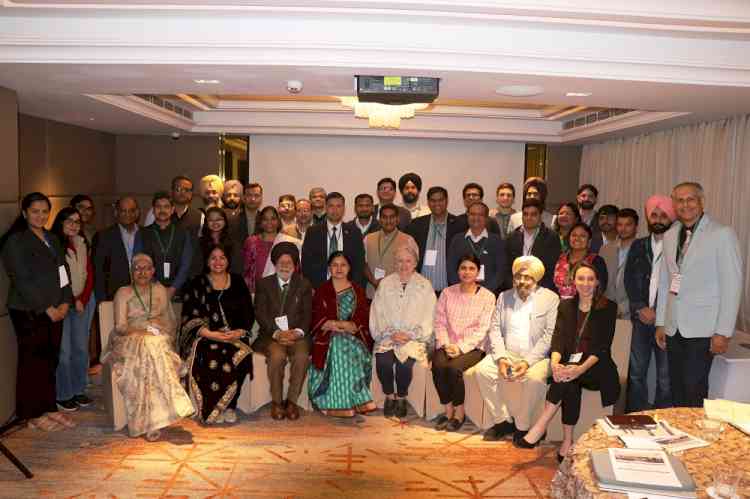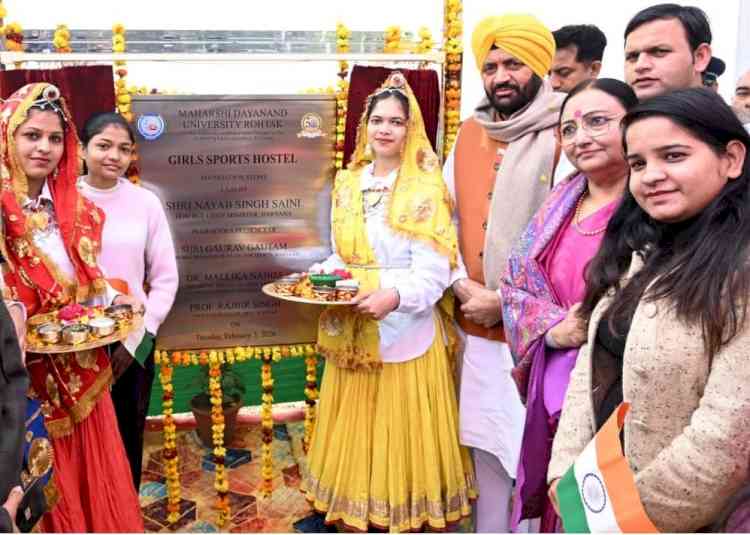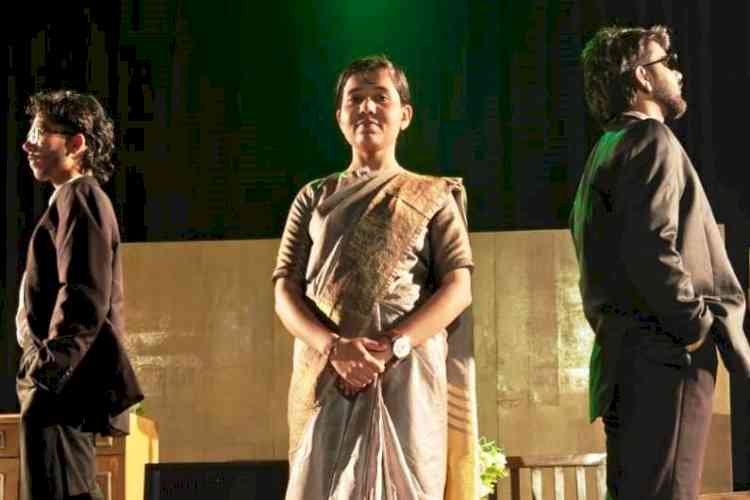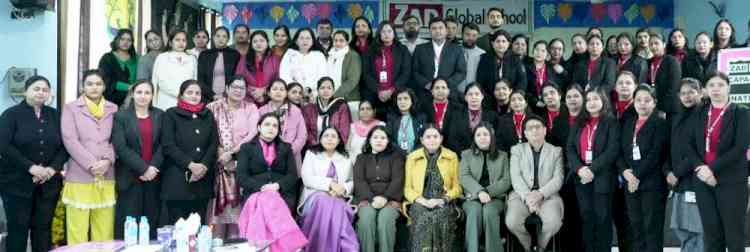Panjab University and UK’s CCG Network Begin Key Workshop on Climate-Compatible Growth
International Workshop on Climate-Compatible Growth started here today. The two-day prestigious workshop "North India Inception Workshop on Climate-Compatible Growth (CCG)" is being organised by Panjab University's Department of Environment Studies in collaboration with the Climate Compatible Growth Network (CCG), United Kingdom, and the British Deputy High Commission, Chandigarh.

Chandigarh, December 5, 2024: International Workshop on Climate-Compatible Growth started here today. The two-day prestigious workshop "North India Inception Workshop on Climate-Compatible Growth (CCG)" is being organised by Panjab University's Department of Environment Studies in collaboration with the Climate Compatible Growth Network (CCG), United Kingdom, and the British Deputy High Commission, Chandigarh.
British Deputy High Commissioner, Chandigarh Ms. Caroline Rowett and Director of the Research Development Cell, Panjab University Prof.Yojna Rawat were the chief guests. In her inaugural address, Rowett emphasised the UK Government’s commitment to supporting low-carbon growth and research initiatives in developing countries through the Climate Compatible Growth programme. She remarked that addressing the climate crisis demands global cooperation and urgent, sustained efforts, rather than isolated actions by individual countries.
Prof. Yojna Rawat underscored the importance of investing in green innovations to pave the way for sustainable growth and resilience for future generations. She highlighted that Panjab University’s participation in the Climate Compatible Growth Programme is not merely a project but a testament to their core values of fostering sustainable development for a Vikshit Bharat (Developed India).
The workshop was coordinated by Dr. Elizabeth Tennyson from the Climate Compatible Growth National Partnerships Team, UK; Madhu Mishra, Senior Adviser for Climate & Development and Economics, British High Commission, Chandigarh; Prof. Ramanjit Kaur Johal; and Prof. Suman Mor, Coordinators of the India Climate Compatible Growth Network at Panjab University. The organisers mentioned that the network will focus on critical areas such as climate-compatible sustainable cities, green energy, and sustainable agriculture.
Dr. Tennyson expressed excitement about the workshop, which brings together leading experts from North India to co-create research projects supporting climate-compatible growth. She praised the strong foundation of the partnership with Panjab University and looked forward to fruitful collaboration in the coming years. Ms. Mishra described the Climate Compatible Growth programme as a proactive strategy to align economic growth with environmental stewardship.
The first technical session, themed “Green Energy,” was chaired by Prof. Gaurav Verma, Director of CIL, Panjab University. Presentations included insights from M.P. Singh, Director of Punjab Energy Development Agency, on Punjab’s green energy priorities, and Gurjot Singh, Director of Bioshakti, on industrial waste-to-energy conversion. Puneet Goel, Director of ICF Consulting, shared a global perspective on green hydrogen, while Leonhard Hofbauer, Research Fellow at UCL Energy Institute, London, presented CCG’s energy system modeling research. Prof.Verma concluded by emphasising the importance of disruptive technologies for sustainable development.
The afternoon session, centered on “Sustainable Agriculture,” was chaired by Dr. B.S. Ghuman, Former Vice-Chancellor of Punjabi University, Patiala. Key presentations included sustainable agricultural practices and carbon credits in Punjab by Gurharminder Singh from the Directorate of Environment and Climate Change; future pathways in sustainable agriculture by Prof.Suveera Gill of UBS, Panjab University; and a behavioural perspective on climate by Ujjwal Maitra, Vice-President of Vertiver. Dr. Ghuman stressed the need for a paradigm shift in the agriculture sector and shared insights on Punjab’s new agricultural policy. The session also featured a talk by Vibhor Sood, Technical Advisor at GIZ, on climate-resilient urban development in India.
The day concluded with interactive breakout sessions where participants, divided into thematic groups, discussed the current status, challenges, and opportunities in their respective areas, fostering collaboration and innovative solutions for a sustainable future.



 City Air News
City Air News 










